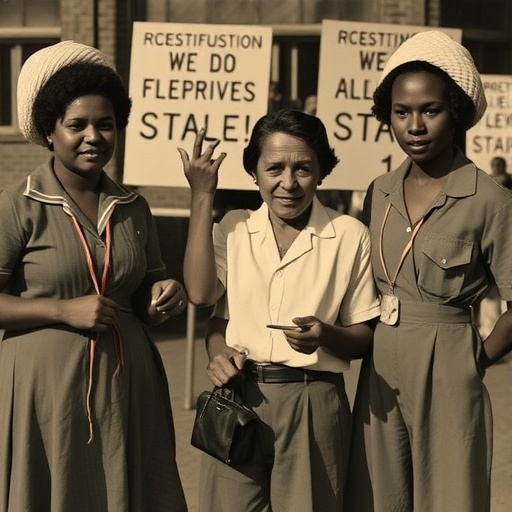In the dim recesses of forgotten garages and dusty attics, history often lies dormant, waiting to be awakened by curious minds capable of bridging generational divides. A remarkable initiative led by the Human Sexualities Research Lab at Binghamton University, part of the State University of New York system, has exemplified this by meticulously unearthing and documenting the transformative legacy of the Gay Men’s Health Crisis (GMHC)—the world’s pioneering HIV/AIDS service organization. This project not only reconstructs a foundational chapter in public health and queer history but also innovates oral history methodology, creating a model for future interdisciplinary research.
Founded in 1982 amid the burgeoning HIV/AIDS crisis, GMHC emerged from the living room of playwright Larry Kramer alongside a group of five courageous gay men in New York City. In an era marked by governmental inertia and widespread societal stigma, GMHC mobilized an informal yet potent network of volunteers who operated as caregivers, advocates, and community organizers. These volunteers, often without formal training in social work or public health, instituted unprecedented peer-support systems, developed cutting-edge educational materials celebrating queer identity, and fought fervently for policy and legal reforms to combat discrimination affecting those living with HIV.
The project’s origins trace back to a serendipitous discovery: GMHC archival materials found stored in a garage during a house clearing. Sean Massey, Associate Professor of Women, Gender, and Sexuality Studies at Binghamton and a former GMHC volunteer, spearheaded efforts to preserve and analyze these primary sources. This endeavor rapidly expanded with collaboration from historians and undergraduates, notably Julia Haager, whose expertise in twentieth-century public health history and eugenics enriched the interdisciplinary approach. Their work culminated in a corpus of oral histories, engaging approximately 120 former GMHC volunteers—an unprecedented scale for oral history projects.
Unlike traditional oral history formats that typically involve one-on-one interviews, this initiative employed a reverse dynamic: teams of mostly undergraduate interviewers engaged individually with each former volunteer via Zoom. Facilitated during the constraints of the COVID-19 pandemic, this method fostered deeper intergenerational dialogue and emotional sharing, supported by real-time guidance from senior academics via digital chat. This innovative framework not only cultivated scholarly development among students but also prioritized the well-being of interviewers confronted with the profound emotional weight of recollections surrounding loss, resilience, and activism.
The GMHC volunteers’ testimonies reveal a complex epidemiological narrative that transcends early perceptions of HIV/AIDS as a disease solely impacting white gay men. The epidemic’s expansion enveloped diverse populations, including heterosexuals, women, people of color, and intravenous drug users. GMHC’s adaptive strategies embodied the fluid sociopolitical and medical understandings of the time, while internal organizational tensions underscore the complexities of responding to a rapidly evolving public health emergency under conditions of marginalization and fear.
Central to GMHC’s groundbreaking work were the so-called “buddy teams”—volunteer pairs functioning as case managers, advocates, and emotional support providers. These teams filled critical gaps left by a health and social services system unprepared for the scale and urgency of HIV/AIDS. Volunteers engaged in home care, legal advocacy, and the creation of safer sex materials that were both destigmatizing and affirming to queer identity. This grassroots mobilization represents a seminal example of community-led public health intervention, emphasizing peer-based care and mutual aid as crucial mechanisms during health crises.
Through the meticulous oral history project, the archive of GMHC materials expanded with personal memorabilia—pamphlets, newsletters, buttons, and t-shirts—donated by interview subjects to the New York Public Library. This growing compendium promises to become an invaluable resource for researchers and the public alike, facilitating a tangible connection to the social movement that reshaped LGBTQ+ health activism and policy advocacy. The forthcoming public accessibility of these materials will ensure the perpetuation of this critical history.
The collaborative nature of this endeavor also illustrates the evolving landscape of academic research, where multidisciplinary teams harness digital technologies and inclusive methodologies to amplify marginalized voices. By involving emergent scholars in all stages—from archival research to interview conduction and cataloging—the project serves as a pedagogical innovation model that nurtures scholarly inquiry and activism alongside community engagement.
Beyond the academic ramifications, this initiative profoundly impacted participants on a personal level. Casey Adrian, an early team member and co-author, reflected on the project’s transformative influence, highlighting how the recollection of past activism informs contemporary commitments to ending HIV/AIDS. Adrian’s trajectory from undergraduate researcher to assistant director at Cornell University’s Bronfenbrenner Center exemplifies the project’s capacity to inspire and shape careers dedicated to social justice and public health.
Furthermore, the project plays a critical role in intergenerational transmission of knowledge within LGBTQ+ communities. Interviews carried implicit tensions and misunderstandings between older generations—who endured the brunt of the crisis—and younger individuals largely removed from this history. By facilitating candid conversations, the oral histories helped dismantle stereotypes and foster mutual recognition, underlining the importance of historical consciousness in sustaining community resilience and mobilization.
In sum, the GMHC oral history project stands as a beacon of innovative scholarship and community memory preservation. It unearths a vital chapter of public health history through a novel methodological lens and reiterates the enduring power of grassroots mobilization amidst epidemic crises. As the archive becomes publicly accessible and publications disseminate these findings, the project ensures that the voices and experiences of those who shaped this transformative era are neither forgotten nor marginalized but continue to inform and inspire future generations.
Subject of Research:
People
Article Title:
“You Folks Are the Ones That Are Going to Carry On”: Conducting Cross-Generational Oral Histories About the HIV/AIDS Crisis
News Publication Date:
1-Aug-2025
Web References:
http://dx.doi.org/10.1080/00940798.2025.2535278
Image Credits:
Sean Massey
Keywords:
Homosexuality, Sexuality, Sexual orientation, Gender studies, Sociology, Society, Social groups, Activism




